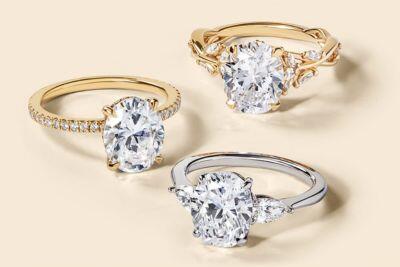
When shopping for ethical engagement rings UK consumers are becoming increasingly conscious of the impact their choices have on both people and the environment. The growing awareness of ethical sourcing, sustainability, and fair trade practices has influenced the jewellery industry, leading to greater demand for transparency in how products are made and where materials are sourced. The same principles extend to wedding bands, with consumers now looking at both types of rings not just as symbols of love but also as representations of responsible consumerism. Understanding the ethical issues surrounding both engagement rings and wedding bands is essential for those who want to make informed, responsible choices.
Ethical engagement rings UK buyers often seek are typically crafted from materials that have been sourced in a manner that adheres to strict environmental and humanitarian standards. This includes the use of conflict-free diamonds, fair trade gold, and recycled metals. The ethical concerns associated with the traditional jewellery market primarily stem from practices such as child labour, unsafe working conditions, and environmental damage caused by mining. As more consumers recognise the importance of these issues, brands that commit to ethical practices are finding a niche market in the UK.
The rise of ethical engagement rings is part of a larger movement towards sustainability in the jewellery industry. This shift is partly driven by younger consumers, who increasingly prioritise social and environmental concerns over purely aesthetic ones. While diamonds have long been the go-to stone for engagement rings, many consumers are now opting for alternatives like lab-grown diamonds or other gemstones that come with clear ethical sourcing credentials. Lab-grown diamonds, in particular, have gained traction for being virtually identical to mined diamonds but without the environmental and ethical drawbacks.
However, ethical concerns extend beyond just the stones used in engagement rings. The metals that make up the bands—whether they are gold, platinum, or silver—can also pose ethical dilemmas. Gold mining, for instance, is often associated with destructive environmental practices and exploitative labour conditions. Ethical engagement rings UK retailers offer typically include metal options that are responsibly sourced, whether through recycling efforts or by ensuring the metal is extracted with minimal environmental harm. Some brands also partner with organisations that promote fair wages and safe working environments for miners.
When considering wedding bands, the ethical considerations are similar, though slightly different in terms of the material and production focus. Wedding bands, like engagement rings, often feature precious metals such as gold or platinum, but may not always include gemstones. The focus for wedding bands, therefore, tends to be on the metal used and the overall production process. Ethical wedding bands are those that prioritise not only the sustainable sourcing of these metals but also the methods by which they are crafted. Many ethical jewellers in the UK now offer options that use reclaimed or recycled metals, which significantly reduces the environmental impact of production.
The ethics surrounding wedding bands are also influenced by cultural and social values. For example, the desire for longevity and timelessness in wedding bands means that many consumers seek out high-quality materials that can stand the test of time. This desire aligns well with sustainable and ethical practices, as consumers increasingly reject disposable or low-quality alternatives that are often associated with fast fashion. The focus on durable, high-quality wedding bands made from ethically sourced materials provides a strong incentive for consumers to invest in pieces that will last for years, rather than contribute to a cycle of waste.
The ethical landscape surrounding both engagement rings and wedding bands in the UK market is evolving, but significant challenges remain. The jewellery industry as a whole has been slow to adopt transparent and responsible practices, and not all brands are forthcoming about their sourcing. As a result, consumers who are committed to making ethical purchases must be vigilant and demand greater accountability from brands. Certifications like the Responsible Jewellery Council (RJC) or Fairmined gold can serve as useful indicators for those seeking to make more informed decisions.
Ultimately, the ethical considerations in purchasing engagement rings and wedding bands come down to understanding the full lifecycle of the product—from sourcing the raw materials to the working conditions under which they are made, and the environmental impact of their production. As awareness grows and more companies embrace ethical practices, the UK market is likely to continue shifting towards jewellery that not only looks beautiful but is also produced in a way that is kind to the planet and the people who inhabit it. Whether it is an engagement ring or a wedding band, making a conscious choice is not just a trend, but a lasting commitment to bettering the world.